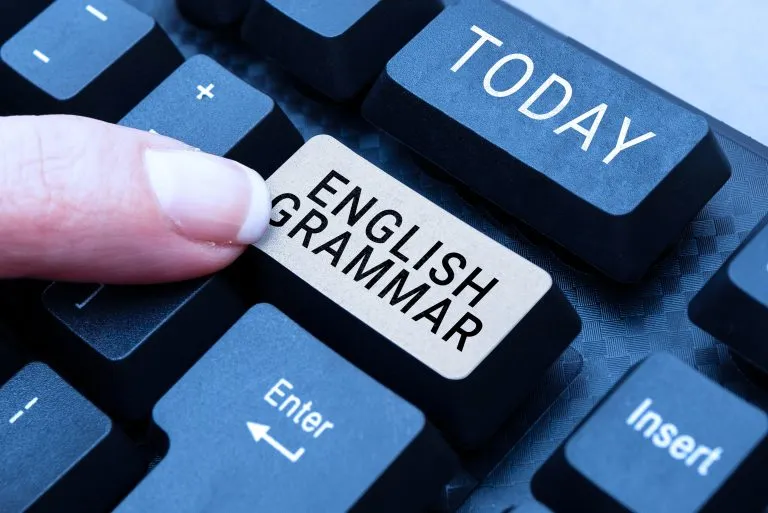Don't sweat the small stuff: looking beyond grammar courses
Grammar courses have a bad reputation and can strike fear into the most seasoned professional. But don’t be anxious. There’s a lot more to clear communication than perfect English grammar. We can give you the right tools to get your message across every time.
Read on to learn:
- why we are so scared of getting grammar wrong
- what you really need to know
- what else you need to focus on.

Why are we so scared of getting grammar wrong?
English grammar is simply all the features of the language, considered as a whole. It is the toolbox we use to build sentences, and most of us already know how to do that very well.
So why do we find it so scary? There are a couple of good reasons.
First, if you were educated in Australia, you will likely have experienced grammar in 1 of 2 ways: the explicit approach or the integrated method.
Until the late 1960s, Australian kids would learn grammar in a very technical, abstract way. This meant they could spot the subjunctive at a glance, but they didn’t know how to use that knowledge.
If you went to school after the 1970s, the integrated method was in vogue, which meant that most teachers didn’t teach grammar explicitly at all. At most, you may have picked up some basic English grammar rules, without being taught why these rules are important.
The other reason we fear grammar is that we’ve all seen or experienced the grammar police gleefully swooping in to correct a grammatical error. Nobody wants to be on the receiving end of that!
What do you really need to know?
Okay, we agree – some grammar is important. But you don’t need to get hung up on old-fashioned rules such as not starting a sentence with a conjunction (which we just did).
Most people who regularly write at work have already learnt the grammar basics that allow them to communicate well. There’s no need to spend time and money on technical grammar programs or writing courses designed specifically to help you defeat the grammar police.
Instead, focus on elements of grammar that will ensure your message is crystal clear.
Look at the structures within your sentences: who or what is acting, and what are they acting on? Doing this will help you to identify passive verbs, which make it unclear who or what is doing the action. Here are 2 examples of passive and active sentence structure:
- Passive example: The report will be written.
- Active example: The manager will write the report.
We teach how to identify and activate passive verbs in our popular 1-day workshop, Plain Language Essentials, and most of our 1- and 2-day corporate training workshops. All our workshops align with Plain language – Part 1: Governing principles and guidelines (ISO 24495-1).
Turn writing at work into writing that works with our ISO-aligned plain language system.
What else should you focus on?
Great workplace communication is about getting your point across, every time. And to do that, you need to look well beyond grammar.
This is where plain language comes in. A document written in plain language is so clear that the reader can find what they need, understand what they find and use that information. In workplace writing, this means your reader will get your point.
Plain language includes:
- Structure – is the material arranged with the most important information first?
- Design – do visual elements support your content and make it easier for readers to understand it?
- Expression – is the wording clear, concise, and at the right tone for your readers?
English grammar is just one element of expression – and that’s why you don’t need to spend too long worrying about it.
Instead, a plain English workshop will teach you about structure, design and expression. These tools will help with everything from writing great letters and emails to becoming more productive at work.
Our expert trainers have worked with over 40,000 professionals, helping them improve their communication skills, which includes strengthening some of the grammar basics. Our workshops are available online or in person wherever you are around Australia. Or take advantage of our state-of-the-art training facilities in Sydney, Adelaide, Brisbane, Canberra, Melbourne and Perth.
If you’d like to book a workshop that covers grammar and a range of other tools, contact our sales team today.
For more support, check out the plain English section in our free Australian Style Guide. This resource will help make your writing clear, consistent and error free, with advice about:
- language
- people and places
- numbers
- punctuation
- formatting
- referencing.






